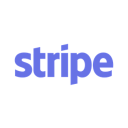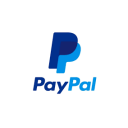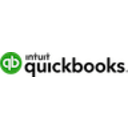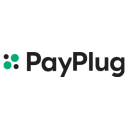Square vs PayPal: Which payment processor is right for your business?
- 01Square Point of Sale vs PayPal: overview
- 02What's the difference between Square Point of Sale and PayPal?
- 03Square Point of Sale pros and cons
- 04PayPal pros and cons
- 05Square Point of Sale compared to PayPal
- 06PayPal compared to Square Point of Sale
- 07Features comparison
- 08Square Point of Sale vs PayPal: Which is the best for your business?
- 09Promotions on Accounting software
- 10Alternatives to Square Point of Sale & PayPal
Save up to $260 on Square Point of Sale
Save up to $260 on Square Point of Sale
Choosing the right payment processor can significantly impact your business's financial efficiency and customer experience. Whether you're a small business owner, a freelancer, or running an online store, selecting the right tool for processing transactions is crucial for managing sales, fees, and overall operations. The good news? There are excellent options available that offer robust features and reliability. The bad news? It can be challenging to determine which payment processor is the best fit for your specific needs.
That's why we've prepared this in-depth comparison of two leading payment processors—Square vs. PayPal. This guide examines their key features, pricing structures, and overall functionality, highlighting the main differences to equip you with the information you need to decide which payment processor aligns best with your business goals.
Square Point of Sale vs PayPal: overview
Square and PayPal are two prominent players in the payment processing industry, each catering to distinct business needs and operational preferences.
Square is renowned for its user-friendly interface and comprehensive suite of tools tailored for small to medium-sized businesses. It excels in providing an all-in-one solution, including point-of-sale systems, inventory management, and analytics, all integrated seamlessly. Square is an ideal choice for brick-and-mortar businesses and those who value a straightforward, scalable platform that can handle in-person and online transactions with ease. On the other hand, PayPal is celebrated for its widespread recognition and trusted global network. It is particularly well-suited for e-commerce businesses and freelancers who need a reliable, versatile payment processor that offers features like international payments, invoicing, and buyer protection.
Now, let's dive into the Square vs. PayPal comparison to help you make an informed decision when selecting the right payment processor for your business needs and financial goals.
What's the difference between Square Point of Sale and PayPal?
When comparing Square and PayPal, two of the most popular payment processing platforms, it's important to understand their key differences to make an informed choice for your business operations. The main distinction between the two lies in their approach to transaction processing, target users, and additional features.
Square is well-known for its all-in-one solution tailored primarily for small to medium-sized businesses, especially those with physical locations. It offers a robust point-of-sale (POS) system that integrates seamlessly with hardware for in-person sales, inventory management, employee scheduling, and detailed analytics. Square's ecosystem is designed to simplify business operations, making it an excellent choice for brick-and-mortar retailers, restaurants, and service providers. Moreover, Square's flat-rate pricing structure is straightforward, with no hidden fees, which appeals to businesses seeking predictable costs.
In contrast, PayPal excels in the e-commerce space, offering a versatile and globally recognized platform that is ideal for online transactions. PayPal’s strength lies in its extensive reach, trusted brand, and features like buyer protection, international payments, and customizable checkout experiences. It is particularly well-suited for freelancers, online businesses, and those who need to manage both domestic and international transactions. PayPal also supports a variety of payment methods, including credit cards, bank transfers, and even cryptocurrency, providing flexibility for both merchants and customers.
Another notable difference is in the pricing models. Square charges a flat fee per transaction, making it easier to predict costs, whereas PayPal's fees can vary depending on the type of transaction and currency involved, which might be less predictable for businesses with diverse payment needs.
The choice between Square and PayPal ultimately depends on your business model and specific needs. If you operate a physical store and need comprehensive POS features, Square might be the right fit. However, if your business is primarily online or you require international payment capabilities, PayPal could be the better option. Both platforms offer unique strengths, catering to different types of businesses and transaction requirements.
Square Point of Sale pros and cons
What are the advantages of Square Point of Sale?
- Comprehensive point-of-sale (POS) system: Square offers a robust POS system that integrates seamlessly with hardware and software, making it easy for businesses to manage in-person transactions, inventory, and employee schedules all in one place.
- Flat-rate pricing: Square's transparent, flat-rate pricing structure means no hidden fees or complicated pricing tiers, making it easy for businesses to predict costs and manage their budget.
- Free basic features: Square provides a wide range of free tools and features, including invoicing, reporting, and customer relationship management (CRM), which are ideal for small businesses looking to minimize costs.
- Ease of use: Square is known for its user-friendly interface, making it easy for businesses of all sizes to set up and start processing payments quickly without needing technical expertise.
- No long-term contracts: Square does not require businesses to sign long-term contracts, offering flexibility to switch or cancel services without penalty if their needs change.
What are the disadvantages of Square Point of Sale?
- Higher fees for certain transactions: While Square's flat-rate pricing is transparent, it can be more expensive for high-volume businesses or those with larger average transaction amounts, especially when compared to some competitors that offer lower rates for such businesses.
- Limited international support: Square is primarily available in a few countries and does not support international payments in the same comprehensive way that some competitors, like PayPal, do.
- Account stability issues: Some users report sudden account holds or closures, especially if Square flags transactions as potentially suspicious. This can disrupt business operations if funds are frozen without notice.
- Basic customer support: Square's customer support can be limited, particularly for smaller businesses that do not have access to priority support, which may lead to delays in resolving issues.
- Limited customization for large businesses: While Square is great for small to medium-sized businesses, larger enterprises may find its customization options and advanced features somewhat limited compared to more specialized or enterprise-focused payment processors.
Compare Square Point of Sale to other tools
PayPal pros and cons
What are the advantages of PayPal?
- Global reach and brand trust: PayPal is one of the most recognized and trusted payment platforms worldwide, making it an excellent choice for businesses that operate internationally or want to build trust with customers quickly.
- Versatile payment options: PayPal supports a wide range of payment methods, including credit and debit cards, bank transfers, and even cryptocurrency, providing flexibility for both merchants and customers.
- Strong buyer protection: PayPal offers extensive buyer protection policies, which can help increase customer confidence and potentially lead to higher sales, especially in e-commerce environments.
- Easy integration with e-commerce platforms: PayPal integrates seamlessly with most major e-commerce platforms, such as Shopify, WooCommerce, and Magento, making it easy for online businesses to start accepting payments without complex setup processes.
- No setup or monthly fees: PayPal does not charge setup or monthly fees for its basic services, making it accessible for small businesses or startups looking to minimize upfront costs.
What are the disadvantages of PayPal?
- Transaction fees: PayPal's transaction fees can be higher than those of some competitors, particularly for international payments or for businesses with large transaction volumes, which can eat into profit margins.
- Account holds and limitations: PayPal is known for sometimes placing holds or limitations on accounts, especially if there is a sudden spike in transactions or if certain transactions are flagged as suspicious, which can disrupt cash flow.
- Complex fee structure: PayPal's fee structure can be somewhat complex, with different fees for domestic versus international transactions, currency conversions, and other scenarios, making it harder for businesses to predict exact costs.
- Limited customer support: While PayPal offers customer support, some users report long wait times and difficulty in resolving issues, particularly for smaller businesses without access to premium support options.
- Lack of customization for in-person payments: While PayPal is strong in the online payment space, its tools for in-person payments are not as robust or customizable as those offered by competitors like Square, making it less ideal for businesses that rely heavily on brick-and-mortar sales.
Compare PayPal to other tools
Square Point of Sale compared to PayPal
Square and PayPal are two leading payment processing platforms, each catering to different business needs. Square is ideal for small to medium-sized businesses, particularly those with physical locations, offering an all-in-one solution with a user-friendly point-of-sale system, flat-rate pricing, and integrated tools for inventory and employee management.
In contrast, PayPal is better suited for e-commerce and international transactions, boasting a trusted global network, versatile payment options, and strong buyer protection. While Square excels in simplicity and in-person sales, PayPal's strength lies in its extensive online reach and flexibility in payment methods.
Is Square Point of Sale better than PayPal?
Whether Square is better than PayPal depends on your business model and specific needs. Square is a superior choice for small to medium-sized businesses that prioritize in-person sales, need robust inventory management, and value a straightforward, all-in-one point-of-sale solution. It simplifies day-to-day operations with its user-friendly interface and predictable flat-rate pricing.
On the other hand, PayPal is more advantageous for businesses that operate primarily online or internationally, offering extensive payment options, global reach, and strong buyer protection. The decision between Square and PayPal should be based on whether your focus is on in-person retail or online, cross-border transactions.
What is Square Point of Sale best used for?
Square is best used for small to medium-sized businesses that need a comprehensive, user-friendly solution for managing both in-person and online transactions. It excels in providing an integrated point-of-sale system that includes payment processing, inventory management, and employee scheduling, making it particularly valuable for retail stores, restaurants, and service providers.
Square's flat-rate pricing and ease of use make it accessible for businesses with varying levels of technical expertise, while its suite of additional tools, such as invoicing and analytics, helps streamline business operations and improve overall efficiency.
Can Square Point of Sale replace PayPal?
Square and PayPal serve different primary functions, so while Square can replace PayPal in some scenarios, it may not be a complete replacement depending on your business needs. Square is excellent for businesses that require an all-in-one solution for in-person and online sales, with a focus on integrated point-of-sale systems and streamlined operations.
However, PayPal remains a strong choice for businesses that prioritize global reach, versatile payment methods, and e-commerce transactions. If your business heavily relies on international sales or diverse payment options, PayPal might still be necessary alongside Square for comprehensive coverage.
Is Square Point of Sale cheaper than PayPal?
Whether Square is cheaper than PayPal depends on the specific transaction types and volume of your business. Square’s pricing offers a flat-rate model, which provides simplicity and predictability in costs, making it potentially more affordable for businesses with a consistent transaction size.
PayPal, on the other hand, has a more complex fee structure with varying rates for different transaction types, especially for international payments and currency conversions. For small to medium-sized businesses with primarily domestic transactions, Square may often be cheaper. However, for businesses with high volumes or international transactions, PayPal’s pricing could be more competitive depending on usage patterns.
Is there a better Accounting software than Square Point of Sale?
Determining if there's a better software than Square depends on your specific business needs and objectives.
Several alternatives to Square offer different features and benefits. For instance, PayPal is a strong contender for businesses focused on e-commerce and international transactions, with its extensive global reach and flexible payment options. Shopify POS might be better for businesses deeply integrated into the Shopify ecosystem, providing seamless online and in-person sales management. Other options like Clover offer more advanced customization and hardware options for businesses with specific needs. The best choice depends on factors such as your business type, sales channels, required features, and budget.
Waived fees on $10,000 in transactions on Square Point of Sale
Get Waived fees on $10,000 in transactions on Square Point of Sale and up to $260 savings with Secret.
PayPal compared to Square Point of Sale
PayPal and Square serve different business needs, with each excelling in specific areas. PayPal is highly favored for e-commerce and international transactions due to its global reach, extensive payment options, and strong buyer protection, making it ideal for online businesses and freelancers.
Square, on the other hand, is more focused on small to medium-sized businesses that require an integrated point-of-sale system for both in-person and online transactions. Square's flat-rate pricing and comprehensive suite of tools, including inventory and employee management, make it particularly suitable for retail and service-oriented businesses.
Is PayPal better than Square Point of Sale?
Whether PayPal is better than Square depends on the nature of your business. PayPal is often the better choice for businesses that prioritize online sales, international transactions, and need a platform with global reach and diverse payment options. Its strong buyer protection also makes it appealing for e-commerce businesses and freelancers dealing with clients across borders.
However, if your business operates primarily in a physical location or requires comprehensive tools for managing in-person sales and inventory, Square may be the more effective solution.
What is PayPal best used for?
PayPal is best used for businesses and individuals who need a reliable platform for online transactions, particularly in the e-commerce space. It excels in handling payments across different currencies and countries, making it ideal for international sales. PayPal’s widespread recognition and trusted buyer protection policies enhance customer confidence, which can be crucial for online merchants.
Additionally, PayPal’s versatile payment options, including credit cards, bank transfers, and even cryptocurrency, provide flexibility for both buyers and sellers. It's also a strong choice for freelancers and service providers who need a simple, secure way to invoice and receive payments globally.
Can PayPal replace Square Point of Sale?
PayPal can replace Square in certain scenarios, particularly for businesses that operate primarily online or need to manage international transactions. However, it may not fully replace Square for businesses that rely on robust in-person point-of-sale systems, integrated inventory management, and employee scheduling tools, areas where Square excels.
PayPal is more focused on e-commerce and online payments, offering a broader range of payment options and global reach. If your business requires a comprehensive solution for both in-person and online sales, Square may still be necessary alongside PayPal.
Is PayPal cheaper than Square Point of Sale?
Whether PayPal is cheaper than Square depends on your business's specific transaction patterns and needs. PayPal’s pricing has a more complex fee structure, with varying rates for different types of transactions, particularly international payments and currency conversions, which can sometimes result in higher costs.
Square, on the other hand, offers a flat-rate pricing model that can be more predictable and potentially more affordable for businesses with consistent, domestic transactions. However, for businesses that frequently process international payments or need a wide range of payment options, PayPal’s fees might be more competitive.
Is there a better Payments software than PayPal?
Determining whether there's a better alternative to PayPal depends on your specific business needs and payment processing requirements.
Several alternatives to PayPal offer features tailored to different user preferences. For example, Square is an excellent choice for businesses that need an integrated point-of-sale system for both online and in-person transactions, offering a user-friendly interface and transparent flat-rate pricing. Stripe is another strong competitor, particularly for developers and tech-savvy businesses, as it provides highly customizable payment solutions and advanced API integrations. If your business prioritizes international transactions, Wise offers competitive rates and efficient currency conversions.
Features comparison
Square's User-Friendly Interface Outshines PayPal's Complexity
Square is lauded for its seamless user interface and easy navigation, making it an excellent choice for businesses of all sizes. As a SaaS tool, Square simplifies the management of invoices, payments, and customer information with an intuitive dashboard that even tech-challenged users can navigate with ease. For example, setting up a new product in Square’s point-of-sale system can be done in just a few clicks, without needing extensive technical knowledge.
In contrast, PayPal, while powerful and feature-rich, often poses a steeper learning curve. Frequent updates and changes in the interface can disorient users, especially those less familiar with digital tools. This complexity can lead to challenges in finding specific features or managing transactions efficiently. Therefore, in terms of ease-of-use, Square clearly has a slight edge over PayPal, particularly for users seeking a straightforward and user-friendly experience.
PayPal's Extensive Integration Capabilities Surpass Square's Limited Options
When it comes to integration, PayPal excels with a wide array of possibilities, making it a versatile choice for businesses needing to connect with various systems. PayPal offers APIs for a range of functionalities, allowing seamless integration with eCommerce platforms like Shopify, WooCommerce, and Magento, as well as shopping carts and accounting software such as QuickBooks. This broad compatibility extends across multiple devices and operating systems, enabling businesses to customize their payment processes extensively.
Square, while offering robust point-of-sale (POS) and payment functionalities, doesn't match PayPal's breadth of integration options. Square integrates well with selected apps and platforms, particularly within its own ecosystem, but it lacks the flexibility to connect with as many third-party tools and systems as PayPal. For instance, while Square supports integration with tools like Xero and BigCommerce, its capabilities may not extend to more specialized or complex systems. Therefore, for businesses where integration flexibility is crucial, PayPal emerges as the superior choice.
Square’s Customizable Dashboard Outshines PayPal’s Quick Checkout in Business Insights
Square’s customizable dashboard offers a comprehensive view of business operations, making it a powerful tool for entrepreneurs who need detailed insights. The dashboard allows users to track key performance indicators (KPIs) such as sales, inventory levels, and profit margins in real-time, all in one place. For example, a retail store owner can easily monitor which products are selling the most, adjust inventory accordingly, and view daily sales trends at a glance.
In contrast, PayPal’s quick checkout feature is primarily focused on streamlining the client-side transaction process. While this is beneficial for speeding up online sales, it offers far less in terms of analytical insight or operational oversight. PayPal provides limited data on the backend, focusing mainly on transaction completion rather than the broader business metrics. Therefore, when it comes to providing a detailed overview of business performance, Square’s dashboard significantly outshines PayPal's quick checkout feature, making it the better choice for those who need in-depth analytics to manage and grow their business effectively.
PayPal’s Instant Transfers Surpass Square’s Transaction History for Immediate Cash Flow
Beyond its core transaction capabilities, PayPal’s instant transfers feature provides a significant advantage for businesses needing quick access to funds. With this feature, users can transfer money from their PayPal account to their bank account almost instantly, typically within minutes. This can be particularly critical for small businesses that require immediate cash flow to cover expenses or reinvest in inventory.
While Square offers a well-organized, consolidated transaction history that aids in business performance analysis, it does not match PayPal's speed in fund accessibility. Square typically deposits funds into a business’s bank account within one to two business days, which may not be fast enough for businesses that operate on tight cash flow margins. Therefore, for businesses where immediate access to funds is crucial, PayPal’s instant transfers provide a distinct advantage over Square’s more traditional deposit timelines.
Square’s Employee Management Outshines PayPal’s Simplified Payments in Data Security and Access Control
Square’s employee management feature provides a significant advantage for business owners who need to maintain data security and control over operations. With Square, owners can create separate logins for each employee, assigning specific permissions based on their roles. For example, a manager might have access to sales reports and inventory data, while a cashier’s access is limited to processing transactions. This level of control not only enhances security but also ensures that sensitive business information is protected and only accessible to authorized personnel.
In contrast, PayPal’s simplify payments feature is designed to streamline the payment process by creating a personalized payment link for customers, making transactions quick and user-friendly. However, PayPal does not offer any employee management capabilities or access control features. This limitation means that businesses using PayPal lack the ability to regulate who can view or manage different aspects of the payment process, potentially exposing sensitive data to unnecessary risks. Therefore, when it comes to managing employee access and ensuring data security, Square’s employee management feature far surpasses PayPal’s simplified payments tool.
PayPal’s Global Currency Support Surpasses Square’s Payment Flexibility for International Reach
PayPal’s support for over 200 different countries offers a significant advantage for businesses aiming to operate on a global scale. This capability allows businesses to seamlessly accept payments from customers worldwide, expanding their potential market beyond local borders. For example, a small e-commerce store in the U.S. can effortlessly sell products to customers in Europe, Asia, or Africa, with PayPal handling the currency conversion and payment processing automatically.
On the other hand, Square’s versatile payment acceptance features, including swipe, chip, and tap options, are highly effective for in-person transactions, offering flexibility for businesses that deal primarily with domestic customers. However, these features may not be as beneficial for businesses focused on international expansion, where the ability to accept multiple currencies and manage cross-border transactions is more critical. Therefore, for businesses prioritizing global reach, PayPal’s extensive currency support clearly outshines Square’s in-person payment capabilities.
Square’s Comprehensive Inventory Management Outperforms PayPal’s On-the-Go Payment Processing for Product Tracking
Square’s inventory management feature offers a robust solution for businesses that need to keep meticulous track of their products. With Square, business owners can manage everything from pricing to stock levels in one centralized location, ensuring they always have an accurate view of their inventory. For example, a retail store can monitor which items are selling quickly and adjust orders accordingly, all within Square’s intuitive interface. This level of control is essential for businesses with a diverse range of products or those that rely on precise stock management to maintain profitability.
In contrast, PayPal’s accept payments anywhere feature excels in facilitating transactions on the go, making it convenient for businesses operating in mobile or remote environments. However, this feature does little to assist with inventory management, leaving business owners to seek additional tools or solutions to track their stock. While PayPal is excellent for quick, mobile transactions, it lacks the comprehensive inventory oversight that Square provides, making Square the superior choice for businesses with complex inventory needs.
Subscribe to our newsletters.
No FOMO here. Stay up-to-date on all the latest deals and news with our monthly newsletter straight to your inbox like 113,000+ entrepreneurs (+ Get 10% off on on our Premium Membership!)
Square Point of Sale vs PayPal: Which is the best for your business?
Square Point of Sale is the best tool for you if:
- You run a small to medium-sized business that requires an all-in-one solution for both in-person and online transactions, with integrated inventory, employee management, and reporting tools.
- You prioritize ease of use and need a user-friendly interface that allows you to manage sales, track inventory, and analyze business performance without requiring extensive technical knowledge.
- You need predictable costs with flat-rate pricing, making it easier to manage your budget without worrying about hidden fees or complicated pricing structures.
- You operate a brick-and-mortar store and require reliable point-of-sale hardware and software to manage daily transactions efficiently.
- You value comprehensive customer support and access to a variety of free tools that help streamline your business operations, such as invoicing, appointment scheduling, and analytics.
PayPal is the best tool for you if:
- You operate an online business or freelance internationally, needing a trusted platform that handles multiple currencies and provides extensive global payment options with strong buyer protection.
- You require a versatile payment processing solution that integrates seamlessly with e-commerce platforms, shopping carts, and other online tools, offering flexibility in how you receive payments.
- You need a payment system that is widely recognized and trusted by consumers, which can help boost customer confidence and potentially increase sales, especially in the online market.
- You prioritize quick access to funds with features like instant transfers to your bank account, which is crucial for managing cash flow efficiently.
- You want a platform that offers a range of payment options, including credit cards, bank transfers, and even cryptocurrency, catering to a diverse customer base.
Alternatives to Square Point of Sale & PayPal
Promotions on Accounting software
Start saving on the best SaaS with Secret.
Secret has already helped tens of thousands of startups save millions on the best SaaS like Square Point of Sale, PayPal & many more. Join Secret now to buy software the smart way.











